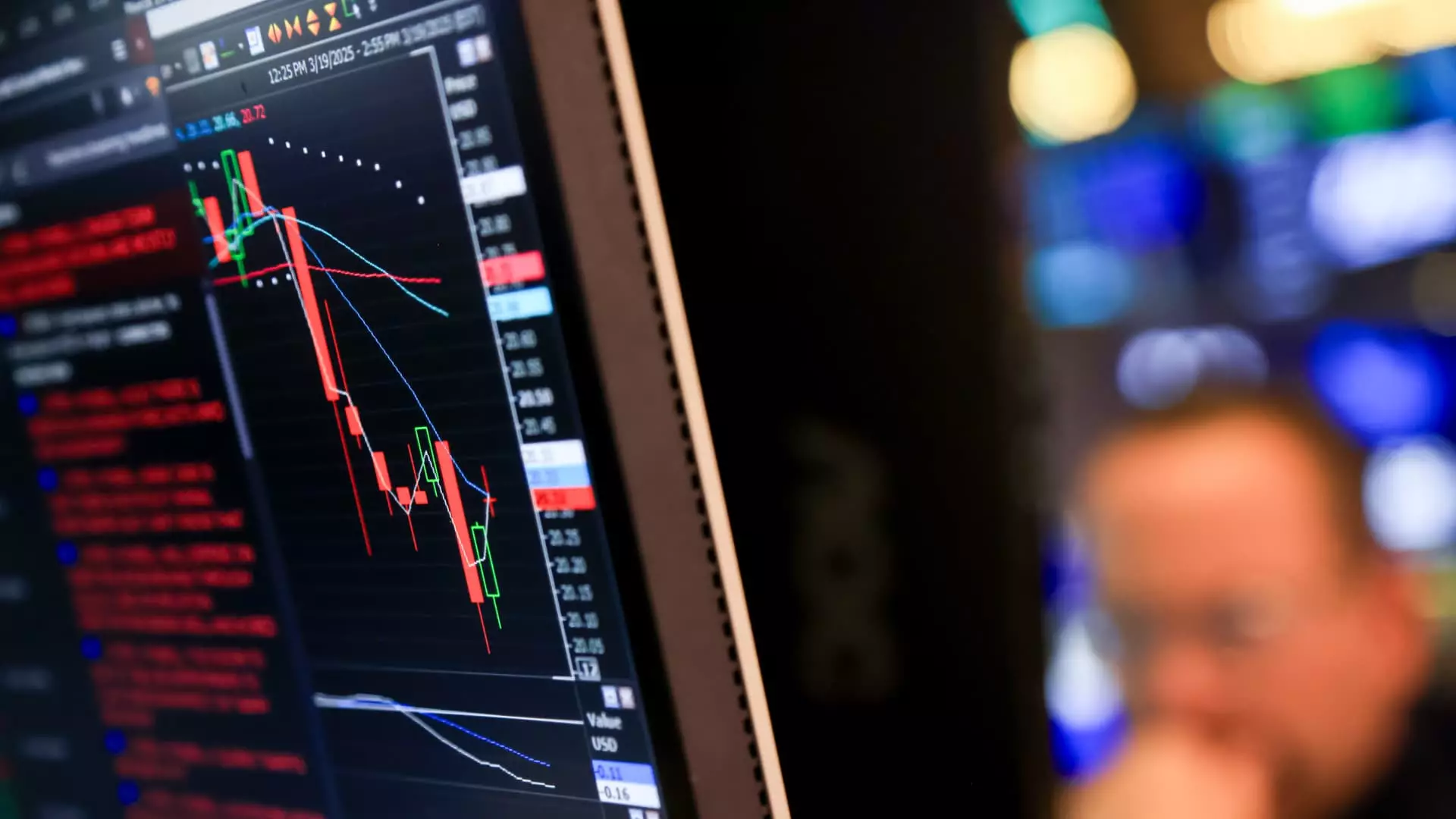The venture capital (VC) landscape is facing unprecedented turmoil, exacerbated by recent U.S. tariffs and market volatility. Amidst last week’s staggering multitrillion-dollar stock market rout, the uncertainties triggered by political decisions are hitting the startup ecosystem hard. Investors now find themselves in a precarious position, with the dual dilemmas of a shortage of initial public offerings (IPOs) and a prolonged trend of startups choosing to remain private for extended periods. This troubling development indicates a near-crisis state for many venture capitalists, who typically depend on public offerings or acquisitions to realize gains from their investments.
With the rise of tariffs, companies are confronting a more hostile market environment that compounds their challenges in accessing the capital required to fuel growth. For instance, tech giants like Klarna and StubHub, which had initially prepared to go public, have suddenly pulled back their plans in the face of unpredictable global equity markets. “Turbulence in the market keeps everyone on edge,” noted Tobias Bengtsdahl, a partner at Antler’s Nordics fund. And he is right—no one should venture into IPO territory when the ground beneath their feet is shifting like quicksand.
Valuation Conundrums: A Stalemate for Startups
Startup valuations typically reflect a sense of optimism and future potential, but the current market dynamics challenge this perspective. Assessing valuations can become an awkward dance for venture capitalists, especially as many startups are still waiting to raise their next funding rounds. Bengtsdahl’s statement underscores this phenomenon: “We don’t change the valuations of our startups just because the stock market goes down.” In effect, that means in the private market, established norms are fraying, leaving many startups vulnerable.
As the public markets experience wild swings, valuations on the private market may remain static, resulting in a disconnect that can stymie funding. Higher valuations in elongated funding rounds become harder to justify when the public market counterparts are faltering. With pressure mounting for venture capital funds to deliver returns to their limited partners—who include pension funds, hedge funds, and wealthy individuals—the existence of any exit strategy becomes a vexing issue.
The looming reality is that late-stage firms, which are more susceptible to the whims of public markets, may soon find themselves facing down rounds, where they must raise funds at lower valuations. This downward pressure can trickle down to early-stage startups, potentially creating a long-lasting chill across the venture ecosystem.
Europe’s Unexpected Opportunity Amidst Turmoil
Interestingly, amid this chaos lies a glimmer of hope for European startups, which may benefit from the challenges in the U.S. VC landscape. According to Sanjot Malhi, a partner at Northzone, “If talent and liquidity find the U.S. environment less hospitable, that flow has to go somewhere.” This presents an unprecedented opportunity for Europe to reshape itself as a resilient tech powerhouse in a climate that serves as a stark reminder of the volatility inherent in the startup world.
This notion is echoed by Christel Piron, CEO of PSV Foundry, who suggests that the turbulence surrounding U.S. tariffs is forging a stronger sense of unity in Europe. Founders are displaying a renewed commitment to growing their businesses on home soil. Piron’s sentiment conveys that perhaps the uncertainty could inspire a sense of responsibility among entrepreneurs to contribute to the nascent development of a cohesive European tech nation.
It’s crucial to recognize that while U.S.-based startups may flounder under the weight of tariff-induced uncertainties, European companies could emerge with a clearer, more unified path forward.
A Fractured Future for Exits in Venture Capital
Given the volatility in public markets, the prospects for exits via IPOs or mergers and acquisitions appear grim. However, they are not entirely extinguished. The need for stakeholders to achieve problem-solving exits could propel an active mergers-and-acquisitions scene, as firms look for ways to navigate inwardly rather than relying on an unpredictable external climate.
Yet the narrative remains deeply concerning. As venture capitalists ponder the efficacy of the current administration, there is a palpable air of frustration. There was an initial expectation that a new wave of regulatory changes would encourage a flourishing IPO market. Six months into the administration, that anticipation has begun to wear thin, and the looming question is: will the current political landscape stabilize enough to reignite investor confidence?
While the future of venture capital seems precarious, with challenges posed by tariffs and market volatility, one cannot overlook the potential shifts in opportunity that could arise. The question remains whether stakeholders in both the U.S. and Europe can adapt and thrive amid such uncertainty—or whether they will ultimately be swallowed by the tumultuous tide.

